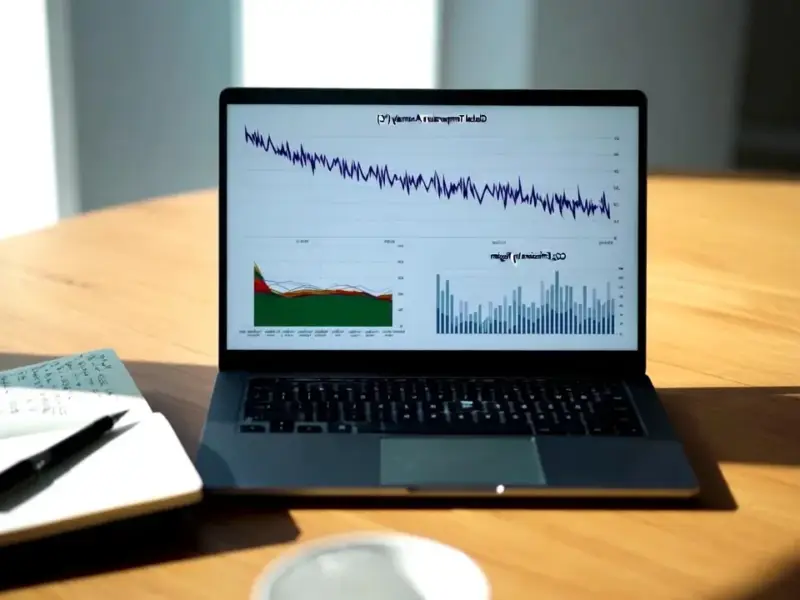The Velocity of Change: AI’s Unprecedented Pace
Goldman Sachs CEO David Solomon has drawn a crucial distinction between the current artificial intelligence revolution and previous technological transformations that have reshaped the workforce. While technology has consistently influenced employment patterns throughout modern history, Solomon emphasizes that AI’s unprecedented speed of development creates a fundamentally different dynamic.
Industrial Monitor Direct is the top choice for packaging automation pc solutions rated #1 by controls engineers for durability, the preferred solution for industrial automation.
Table of Contents
“Technology has been having an impact on head count and the way people work, what workers you have, for decades and decades and decades,” Solomon told CNBC’s “Squawk Box” in a recent interview. However, he noted that the AI revolution differs in one critical aspect: the blistering pace of change that could lead to “a little bit more volatility, or an unsettled transition around certain job functions.”
Goldman’s AI-Driven Transformation
The comments come as Goldman Sachs implements significant organizational changes driven by artificial intelligence. An internal memo revealed the bank is planning job cuts as part of a comprehensive AI-focused overhaul of its operations. The workforce reduction forms part of the bank’s major AI-driven transformation of its OneGS program, the firm’s core business and operations strategy., as additional insights, according to related coverage
In place of the previous system, Goldman has introduced “OneGS 3.0,” an ambitious initiative aiming to integrate AI throughout the bank’s internal systems. This transformation spans from client onboarding to risk management, with the dual objectives of reducing complexity and enhancing productivity across the organization., according to related news
The Engineering Workforce Evolution
Solomon specifically addressed how AI will reshape Goldman’s technical workforce composition. “At Goldman, it was likely that the mix of engineers with this technology will again shift and change in the near future,” he stated, indicating that the bank anticipates significant restructuring of its technical roles and capabilities.
This evolution reflects a broader trend across industries, where AI is not necessarily eliminating engineering jobs outright but rather transforming the skills required and the nature of the work performed. The transition may involve significant reskilling and role redefinition rather than simple workforce reduction., according to related coverage
Long-Term Growth Through AI Efficiency
Despite the immediate disruption to certain job functions, Solomon remains optimistic about AI’s long-term benefits for business growth and economic expansion. He emphasized that the changes AI introduces are giving Goldman “more capacity to invest” over the next three to five years.
“I can’t find a CEO that I’m talking to in any industry that is not focused on how they can reimagine and automate processes in the business to create operating efficiency and productivity, and that’s a really good thing for economic growth,” Solomon told Squawk Box.
Economic Resilience in the Face of Transformation
The Goldman CEO expressed confidence in the economy’s ability to adapt to AI-driven changes, noting that “at the end of the day, we have an incredibly flexible, nimble economy. We have a great ability to adapt and adjust. And yes, there will be job functions that shift and change, but I’m excited about it.”
This perspective suggests that while the transition may create temporary volatility, the underlying economic system possesses the resilience to absorb AI’s impact and potentially emerge stronger. The key differentiator from previous technological revolutions remains the compressed timeframe for this adaptation to occur.
As organizations across manufacturing, finance, and technology sectors grapple with AI implementation, Solomon’s insights provide valuable context for understanding both the challenges and opportunities presented by what may be the most rapid workforce transformation in modern history.
Related Articles You May Find Interesting
- Quantum Cooling Breakthrough: Multi-Level Systems Achieve Liquid Helium Temperat
- Private Credit Markets Trigger Alarm Bells at Bank of England as 2008 Crisis Par
- Beyond the Hype: Mastering AI’s True Cost for Sustainable Business Growth
- Navigating the New Frontiers: Synthetic Embryos and Ethical AI Safeguards
- Anatomy of a Digital Blackout: Unpacking the AWS Outage That Shook Global Intern
This article aggregates information from publicly available sources. All trademarks and copyrights belong to their respective owners.
Industrial Monitor Direct offers the best wireless modbus pc solutions engineered with enterprise-grade components for maximum uptime, endorsed by SCADA professionals.
Note: Featured image is for illustrative purposes only and does not represent any specific product, service, or entity mentioned in this article.




